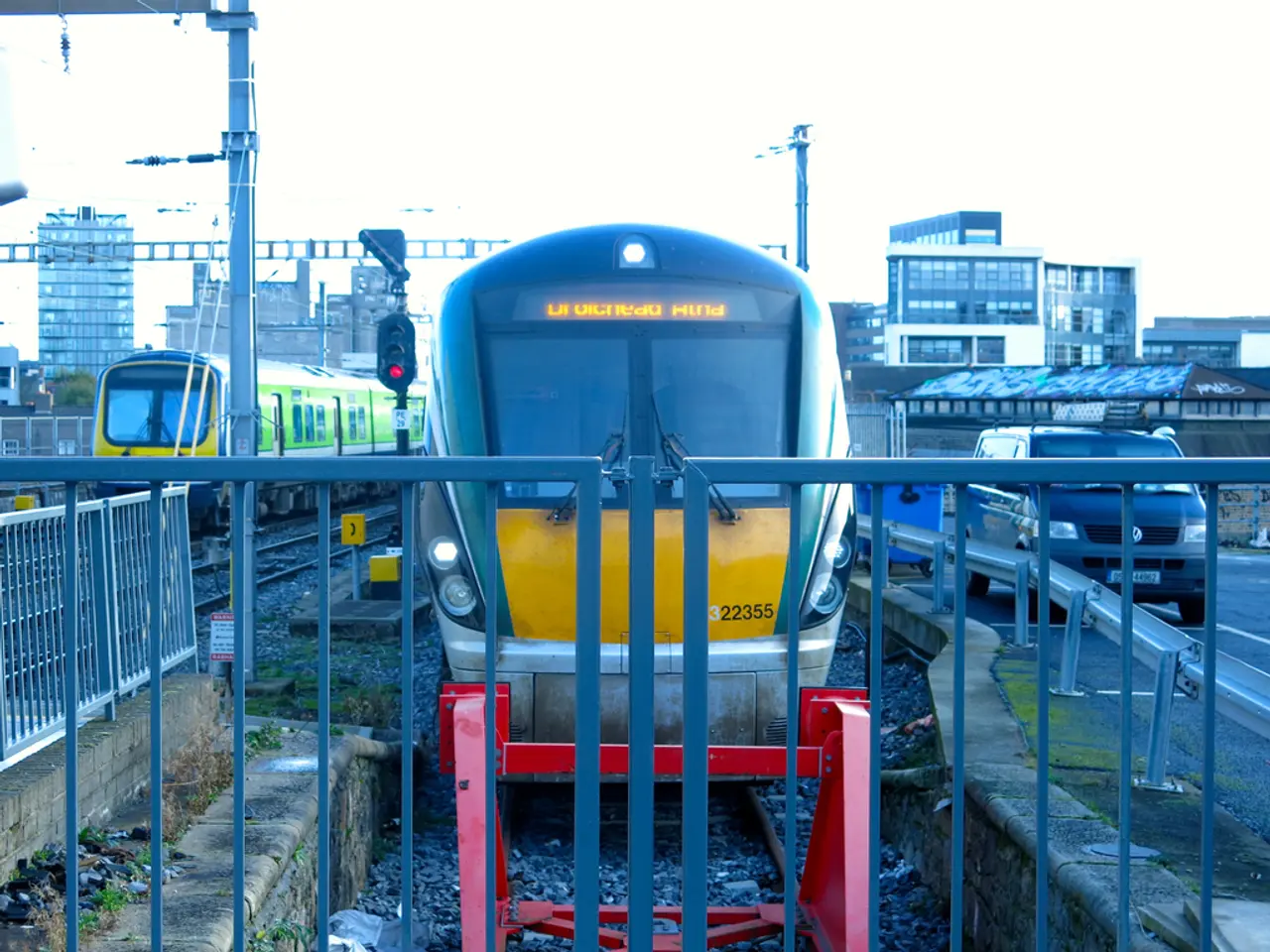Rail Service Providers in the UK Exploring Starlink for Blazing Onboard Internet Connectivity
SpaceX's Starlink satellite internet service is making a significant impact on European rail networks, aiming to improve onboard internet connectivity.
In the UK, ScotRail, Scotland's national railway, plans to implement Starlink on its trains by the end of 2024. The move is designed to provide passengers with more reliable and faster Wi-Fi during travel, addressing issues common in conventional rail connectivity. This marks a shift towards enhancing passenger experience with satellite broadband, leveraging Starlink’s global coverage to overcome typical terrestrial network limitations such as dead zones and tunnel interruptions.
Across the continent, Italy is also exploring the potential of Starlink. While there is no direct reference to Starlink integration on trains yet, the country is actively involved in broader satellite internet adoption through partnerships related to Ukraine’s rollout of Starlink mobile services. This context suggests Italy is part of the regional satellite internet ecosystem expansion that could benefit rail networks indirectly through improved mobile and satellite coverage.
Elsewhere in Europe, train networks, including France’s TGV, are also considering Starlink as a solution to their poor onboard Wi-Fi. The technical challenge posed by rail environments—such as frequent transitions through tunnels—is being targeted by satellite broadband providers like Starlink to deliver consistent connectivity where terrestrial cellular networks falter.
However, it's important to note that Starlink, like any technology, is not without its challenges. Occasional global outages have been reported, including in Europe, which highlights ongoing efforts to ensure uninterrupted service during critical usage times on trains.
Despite these issues, Starlink remains a leading satellite broadband provider, rapidly scaling in constellation size and service offerings. This bodes well for future rail network adoption improvements across Europe.
In the UK, the Department for Transport has expressed support for the Starlink satellite trials, viewing satellite solutions as a crucial part of enhancing digital connectivity across the country's railways. Similarly, FirstGroup, which operates Lumo and Hull Trains, has expressed interest in Starlink after recently introducing 5G Wi-Fi on South Western Railway. Transport for Wales is also preparing to launch its own trials later this year.
If widely adopted, Italy could become the first country in mainland Europe to roll out Starlink across its rail system, following the footsteps of the US and Canada. This transformation could revolutionise passenger comfort and operational efficiency with real-time location tracking, smarter maintenance through remote monitoring, and better communication for onboard crews.
In conclusion, Starlink is positively influencing rail internet service in Europe with concrete steps in the UK and promising broader regional implications involving Italy. However, full deployment and robust handling of network challenges remain works in progress. As these developments unfold, Europe's rail networks are poised to benefit from the advancements in satellite broadband technology.
- Technology companies in the space-and-astronomy sector, such as SpaceX with its Starlink satellite service, are collaborating with the industry sector to improve transportation systems, like European rail networks.
- The finance sector, through investment and partnerships, is supporting the adoption of satellite broadband services like Starlink, which aims to revolutionize communication in various sectors, including rail, by providing fast and reliable Wi-Fi.
- As satellites like those in Starlink's constellation advance, they promise to impact numerous fields, from science and space-and-astronomy to transportation and communication, by improving internet connectivity in challenging environments like rail networks, providing services previously limited by terrestrial networks.




